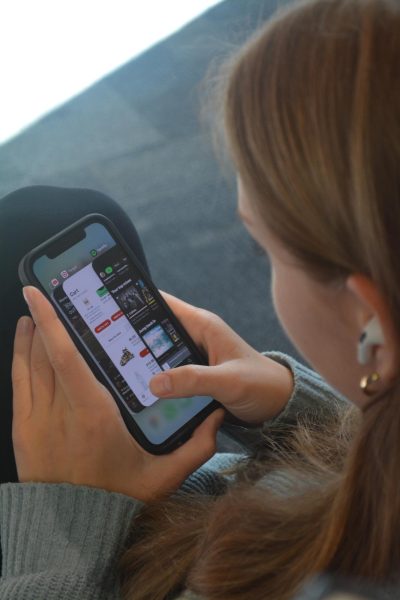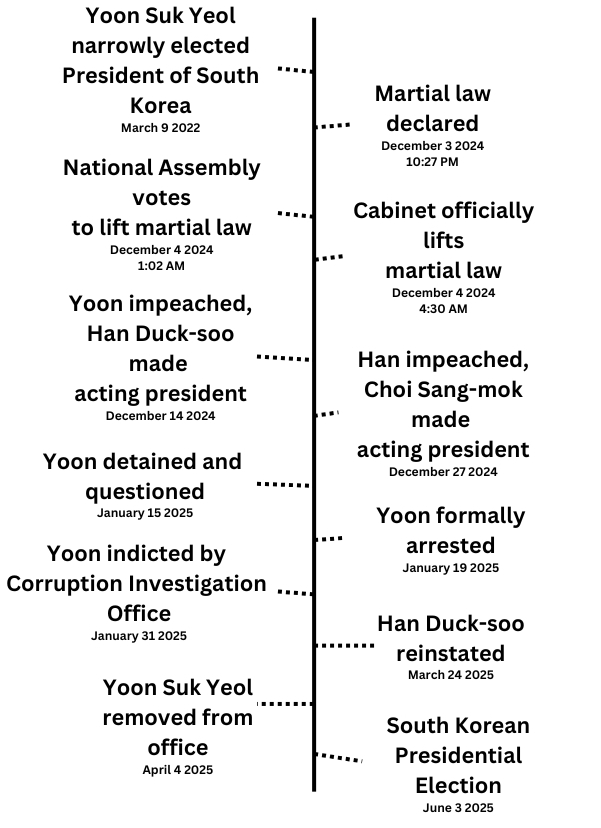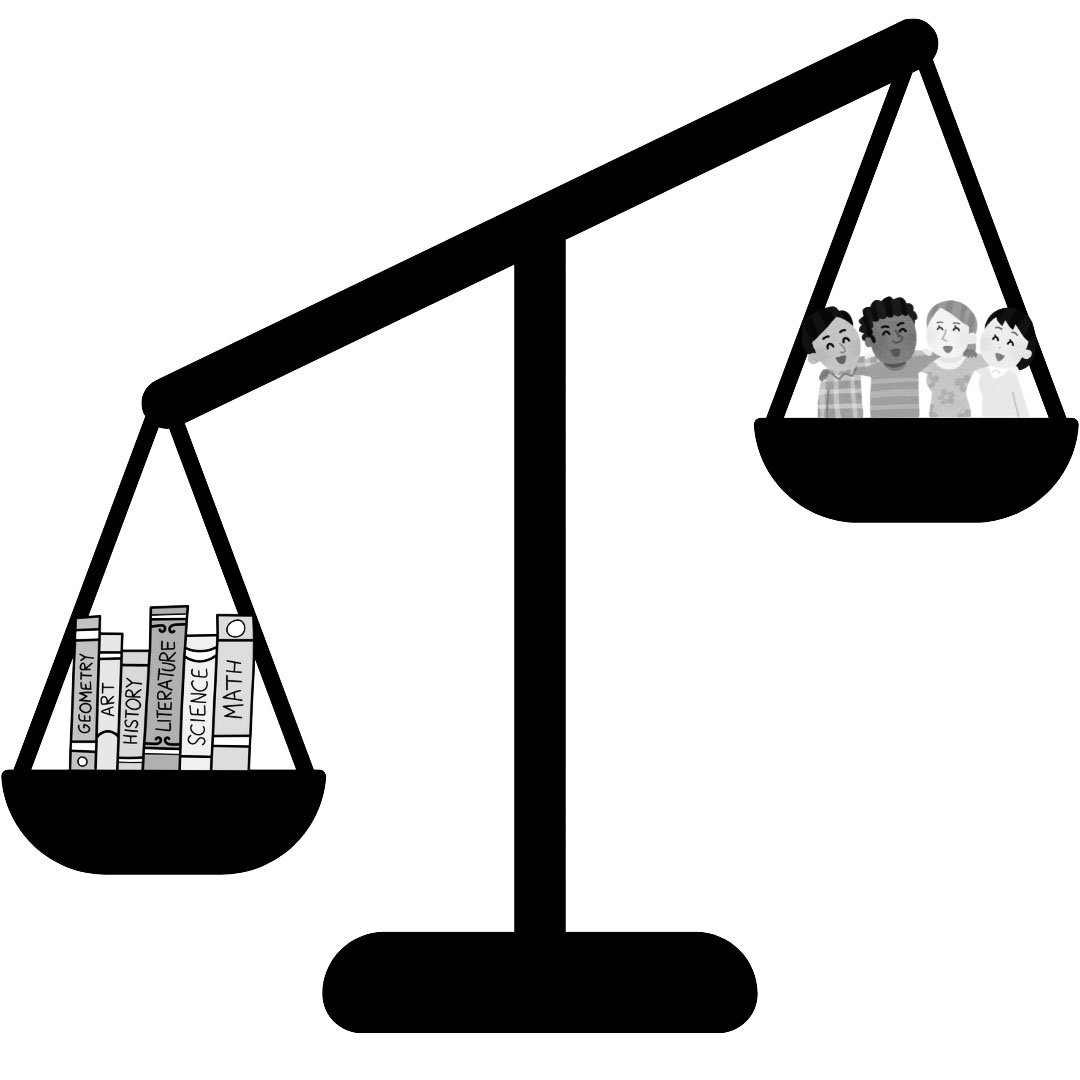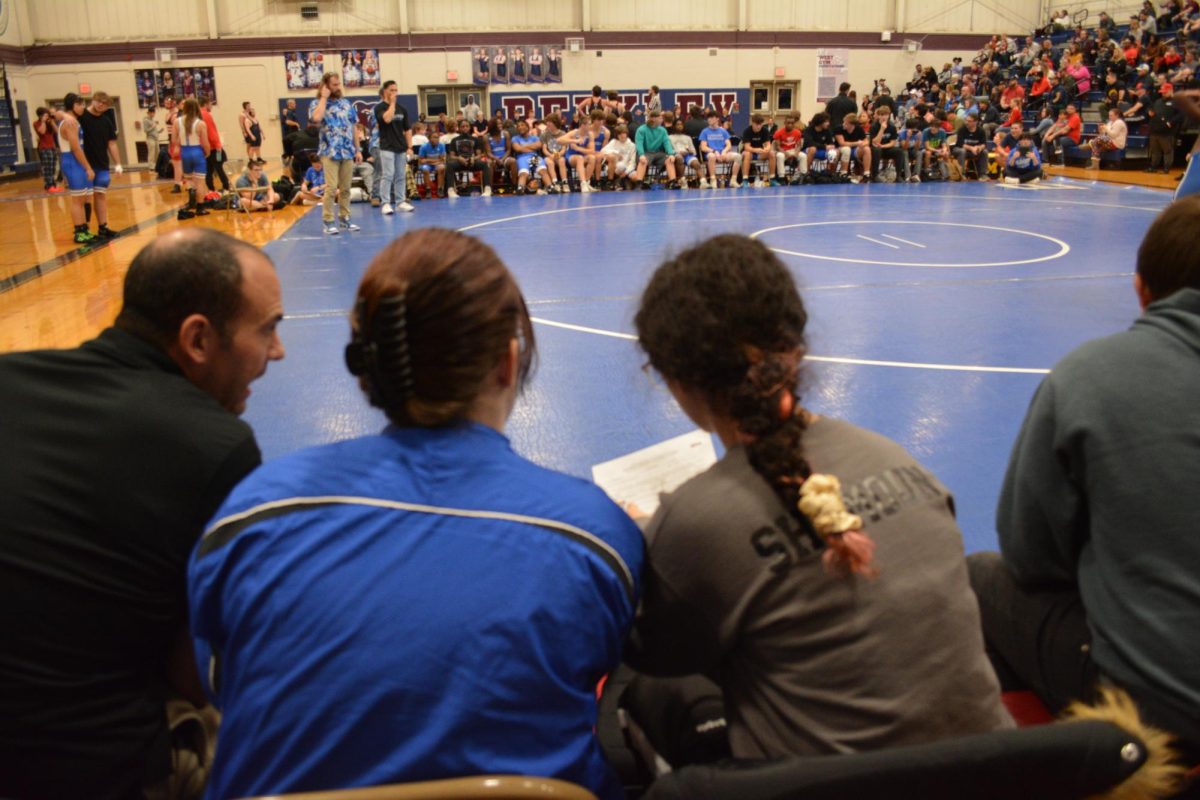In today’s society, a majority of people we socialize with and include in our lives rely on the phone in their back pocket. Regardless of how many people are attached to their devices, primarily younger generations receive the same backlash over and over again for their use of their phones and have even been deemed “screenagers,” referring to the addiction the majority of people in younger generations face compared to older generations. Being deemed a “screenager” myself, I constantly ask myself the question: why are teenagers wrong for using their phones often? Using the term “screenager” puts teenagers in a box, and this characterization of them is harmful to their feelings and self-esteem.
A stereotype is sometimes based on factual evidence, and in this case, it is. A study by Common Sense Media stated that teenagers aged thirteen through eighteen have “the

highest rate of smartphone addiction,” with 50% of them feeling that they’re “addicted to their phones.”
But what stereotypes don’t account for are the outliers who want to avoid the negative effects that come with a phone addiction. For me, when I hear people claim that all teen
agers are hopelessly and endlessly addicted to their phones, it leads me to internalize these negative views about my worth and capabilities. Is there hope for me? Or will I always be “glued to my screen”,
as I’ve heard from parents, teachers, and even strangers? Using phones in settings where they aren’t allowed is more so a behavioral issue, and to assume that all teenagers have behavioral issues is an unfair assumption. A behavioral issue that limits educational progress is one thing. A phone addiction that doesn’t is another. This extreme focus on phone addiction is changing how the population responds to addiction, and how we respond to it is different from how we treat other addictions as a society. For example, health blogs, mental health statistics, and begging parents all encourage us to put down our phones and “go outside,” as if it’s that easy. Although this advice shouldn’t immediately be dismissed, having a phone available whenever you want is the cause for so many people’s need to be online constantly. Is that truly anyone’s fault?
In the same way that someone may feel they need coffee every morning, many are addicted to their phones, and being told to simply “go outside” or “read a book” isn’t going to be an immediate substitute for the hours of scrolling we’ve conditioned ourselves to. Yes, younger generations are being exposed to more technology more often, which is what will happen as the world evolves. For many people of all ages, screen time is a great way to stimulate the mind in a way other than regular day-to-day activities that can be exhausting at times.
Many people in older generations are looking for ways to put a halt to the increasing usage of technology as a response to teens who are addicted to their phones; however, labeling kids as
“screenagers” boxes impressionable kids in and creates a social norm that screens are a staple part of a teenager’s life, which doesn’t allow for that teenager to make the decision themself.
Ways to combat excessive screen usage go beyond calling a group of very diverse, unique kids “screenagers”. Think of how many baby boomers hated being told “Okay, boomer” —a phrase mocking a baby boomer’s behavior or misinformation. Taking advice from the same people who refer to teens as “screenagers” is very hard to do.
Teenagers are not simply mindless phone zombies who must be “fixed.” Teens and younger kids will make a positive impact on the world around them—if given the right support from the generations before them, meaning that older generations should be treating teens with respect at the bare minimum, because the world and how people function in it is changing. A break from
your phone can be beneficial, especially when you feel lost without it. But in a world that is already extremely digital, it is unfair to label someone a “screenager” when they are a complex, unique individual, and making this small change in how we treat
each other can make a positive difference in our world.





























